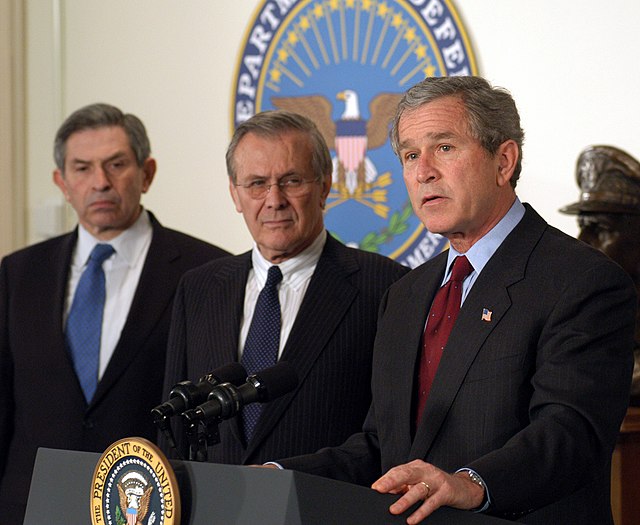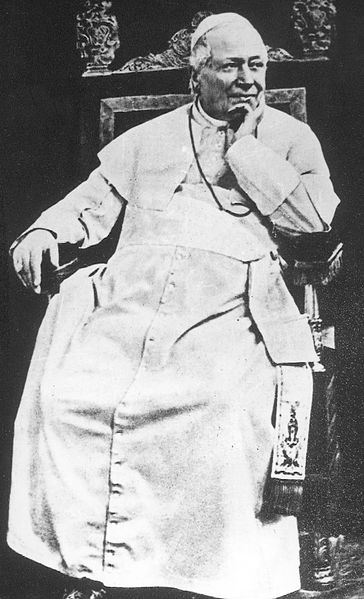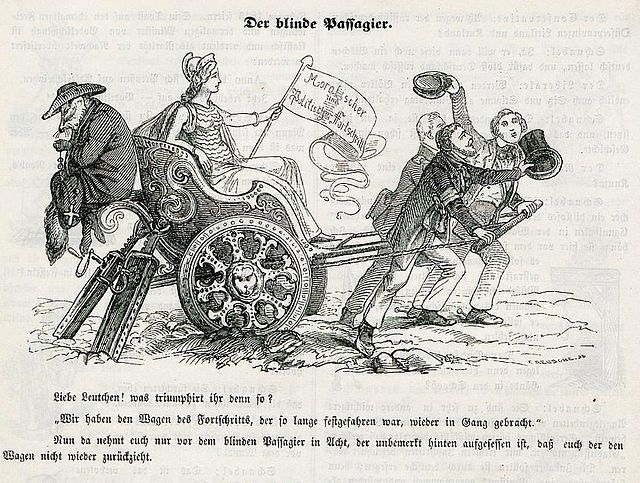In political science, a culture war is a type of cultural conflict between different social groups who struggle to politically impose their own ideology upon their society. In political usage, the term culture war is a metaphor for "hot-button" politics about values and ideologies, realized with intentionally adversarial social narratives meant to provoke political polarization among the mainstream of society over economic matters of public policy and of consumption. As practical politics, a culture war is about social policy wedge issues that are based on abstract arguments about values, morality, and lifestyle meant to provoke political cleavage in a multicultural society.
Members of the American Indian Movement toppled a statue of Christopher Columbus in Saint Paul, Minnesota, on June 10, 2020
Pat Buchanan in 2008
(from right to left) 43rd President George W. Bush, Donald Rumsfeld, and Paul Wolfowitz were prominent neoconservatives of the 2000s.
Rally for Proposition 8, an item on the 2008 California ballot to ban same-sex marriage
In the history of Germany, the Kulturkampf was the seven-year political conflict (1871–1878) between the Catholic Church in Germany, led by Pope Pius IX, and the Kingdom of Prussia, led by chancellor Otto von Bismarck. The Prussian church-and-state political conflict was about the Church's direct control over both education and ecclesiastical appointments in the Prussian kingdom as a Roman Catholic nation and country. Moreover, when compared to other church-and-state conflicts about political culture, the German Kulturkampf of Prussia also featured anti-Polish bigotry fueled by "racist anxieties" in Germany "about the Polish portions of the Prussian East."
Pope Pius IX (c. 1878)
Anti-Catholic caricature in the Munich Leuchtkugeln, 1848. A warning not to rejoice yet. The Catholic cleric as a fox and blind passenger on the wagon of progress, in order to later reverse the course of history.
Bismarck c. 1875
Prussian Minister of Education, Adalbert Falk, 1872








